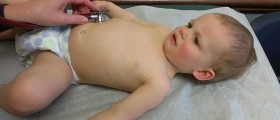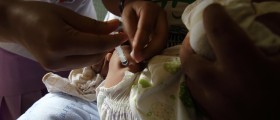
Whooping cough is generally caused by the B. Pertussis bacterium. It can also be caused by the B. parapertussis bacterium for which no vaccine exists. In that case, a patient will experience similar but normally milder symptoms. B. Pertussis is one of the most contagious bacterial infections around, and pertussis is certainly serious enough to warrant concerns!
The bacterium is transmitted from one person to another through small drops of moisture much like a common cold. If you come into contact with someone who has pertussis and they cough or sneeze near you, the disease can be spread. Pertussis symptoms are no different from common cold symptoms in the early stages, so the person who infects you is unlikely to be aware that they have whooping cough. Unfortunately, pertussis is most contagious exactly at the point where symptoms are not worrying to the carrier. There is something else to be aware of. The CDC, Centers for Disease Control and Prevention, state:
The effects of whole-cell pertussis vaccine wane after 5 to 10 years, and infection in a vaccinated person causes nonspecific symptoms (3-7). Vaccinated adolescents and adults may serve as reservoirs for silent infection and become potential transmitters to unprotected infants (3-11). The whole-cell vaccine for pertussis is protective only against clinical disease, not against infection (15-17). Therefore, even young, recently vaccinated children may serve as reservoirs and potential transmitters of infection.In other words, pertussis could be spread by people who have been vaccinated themselves and will therefore have no symptoms or very mild symptoms and are not aware they have it. The whole-cell vaccine mentioned is not in regular use in the US anymore, but the a-cellular vaccine is generally deemed to be slightly less effective than the whole-cell vaccine, though there is a lower risk of side effects.

















Your thoughts on this
Loading...